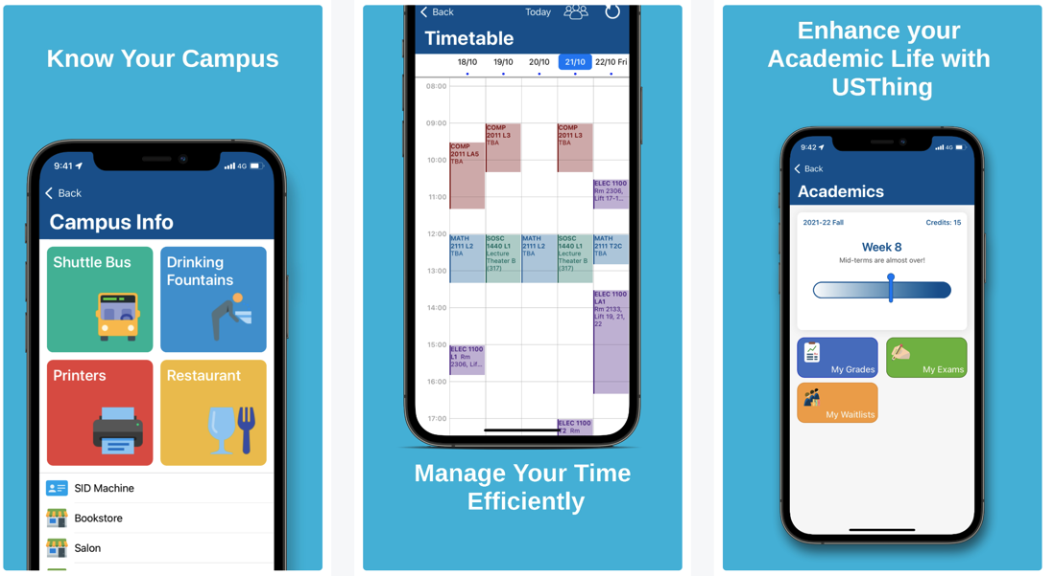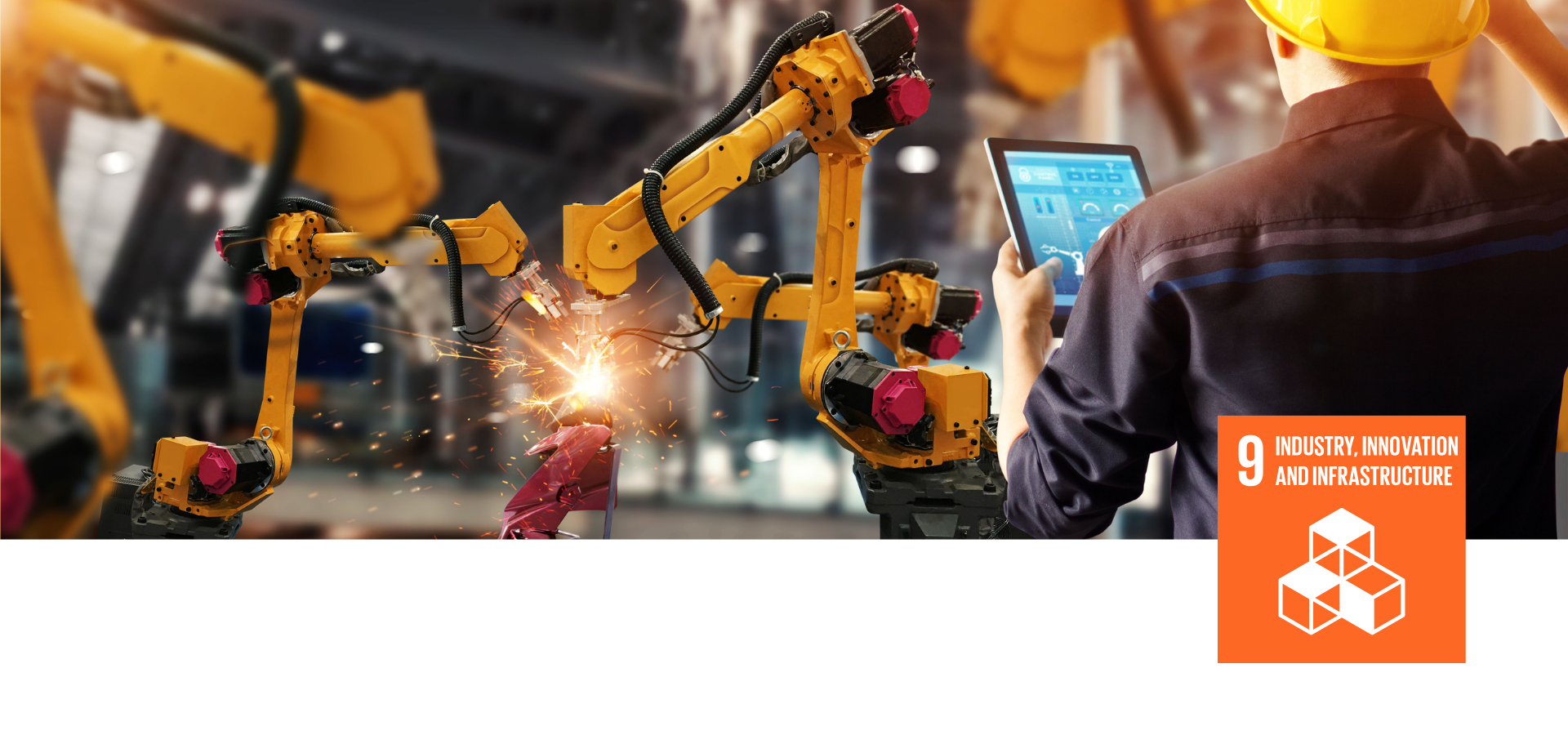
SDG 9: Industry, Innovation and Infrastructure
HKUST recognizes the importance of sustainable industrial practices, technological advancements, and R&D in fostering innovation and promoting sustainable industries. We equip students with knowledge to contribute to resilient infrastructure and inclusive industrialization while encouraging interdisciplinary projects supported by our state-of-the-art research infrastructure and expert faculty.
Curriculum
37 related courses were offered in the 2022-23 academic year.
Research
According to Science Direct, from 2019 to 2023, HKUST published 572 research papers addressing SDG 9.
About 33% of them are in the top 10% cite score and around 71% are internationally co-authored.
Research Highlights
3DK Ultrasonic SLM 3D Printer
Breaking through the barriers of metal 3D printing with ultrasonic excitation and active temperature control. The 3DK Ultrasonic SLM 3D Printer uses ultrasonic waves to influence molten metal material on a molecular level, resulting in structurally sound manufacturing without the need for extra heat treatment processes, able to achieve high-quality products in a faster and cost-efficient way. The 3DK USLM V1 can get your product out to market in less than half the time it takes for any other metal 3D printer in the industry.
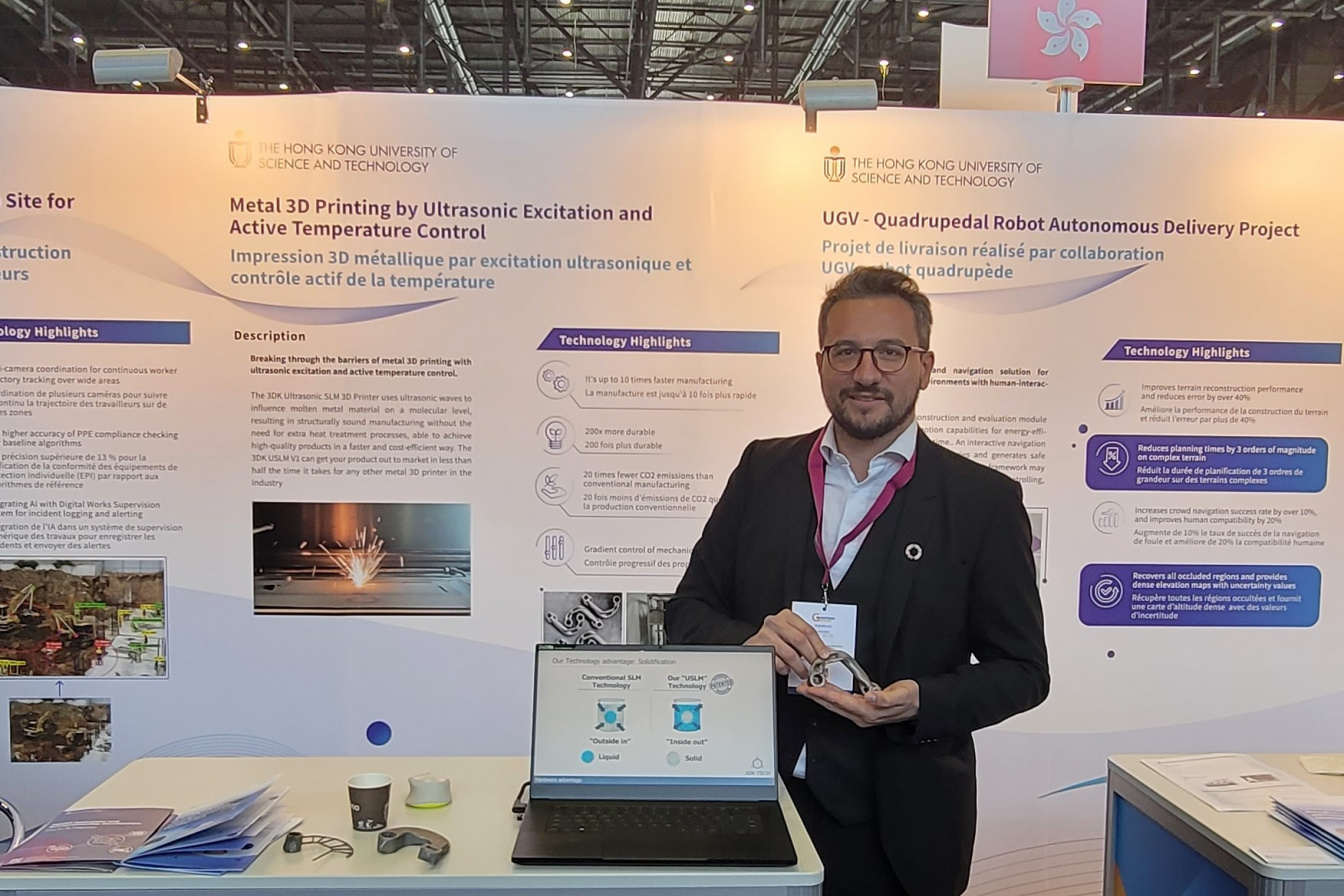
AimGel
AimGel - Artificial cells designed for ex vivo live cell expansion and manipulation in cell therapy. AimGel functions as an "artificial cell," providing optimal presentation of signaling molecules to support the manufacturing of cell therapeutics. It consists of a soft hydrogel core and a fluid lipid shell, enabling the controlled release of recombinant proteins or peptide derivatives for signaling.
Microfluidics technology is employed for the high-throughput production of uniform-sized microbeads, along with our proprietary technology for coating lipids and proteins around the beads.
AutoSafe
AutoSafe’s technology monitors construction workers to ensure they are wearing the necessary protective equipment through an integrated framework powered by in-house deep neural networks. The system also features a human-centric incident reporting system that addresses missing PPE and unsafe behavior, adapting to site-specific requirements.
Policy
Intellectual Property Policy
The Intellectual Property Policy sets out HKUST’s general approach and requirements in relation to, among other things, the creation, invention, ownership use, dissemination, publication, protection, commercialisation, distribution of commercialisation revenue, infringement and/or other exploitation of Intellectual Property that is created.
Collaboration
Guangdong Bright Dream Robtics
We recognize that collaboration between academia and the industry is crucial for knowledge transfer as well as cultivating talent.
In November 2022, the School of Engineering signed a licensing agreement with Guangdong Bright Dream Robotics for the commercialization of five technologies focused on energy-efficient buildings, advanced manufacturing processes, data compression, sustainable materials, and integrated building information modeling.
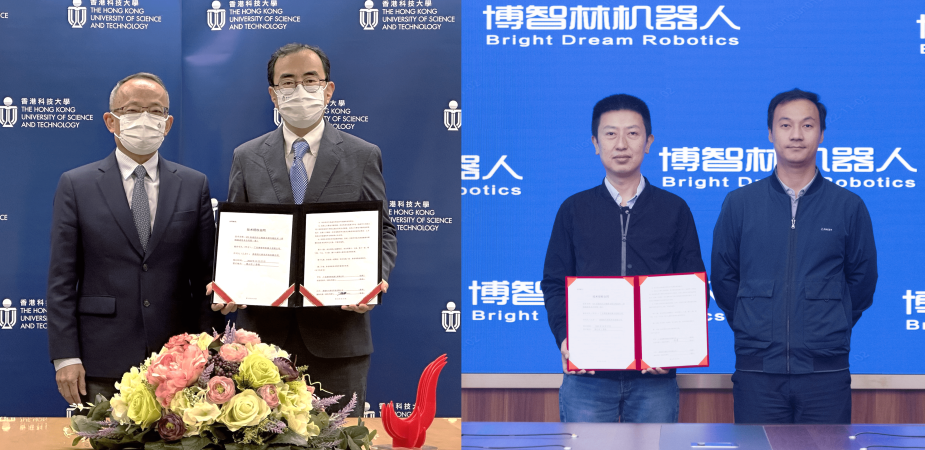
November 2022: HKUST and Bright Dream Robotics Sign Licensing Agreement
Hong Kong Productivity Council
In 2022, Big Data Institute (BDI) established the HKUST-HKPC Joint Research Lab for Industrial AI and Robotics with the Hong Kong Productivity Council (HKPC), aiming to develop innovative industrial technologies using artificial intelligence (AI) and robotics. Through collaboration on research projects in industrial AI, big data, data science, and robotics, the Joint Lab aims to address real-world challenges and explore frontier applications in AI, while internship and fellowship programs provide practical experience and cultivate young talent.

June 2022: Agreement Signing Ceremony, HKUST-HKPC Joint Research Lab for Industrial AI and Robotics
MTR Corporation
We partnered with MTR Corporation to establish the HKUST-MTR Joint Research Laboratory in 2022 for smart community and mobility research. These collaborations provide platforms for knowledge exchange and implementation of innovative solutions, contributing to Hong Kong's research capacity and addressing societal challenges.
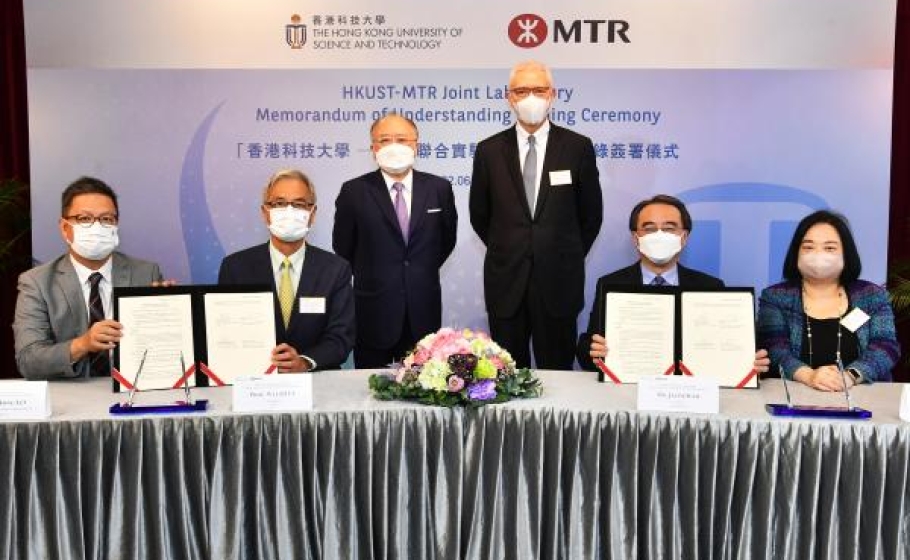
June 2022: HKUST and MTR established the HKUST-MTR Joint Research Laboratory to explore innovative solutions to bring convenience to the public in daily life and travelling
The HKUST Industy Engagement Day
On 11 November 2022. the Office of Knowledge Transfer hosted the HKUST Industry Engagement Day to showcase flagship innovations to to foster collaboration between HKUST researchers and industry partners, promoting technology development, cross-sector collaboration and knowledge sharing in Hong Kong.
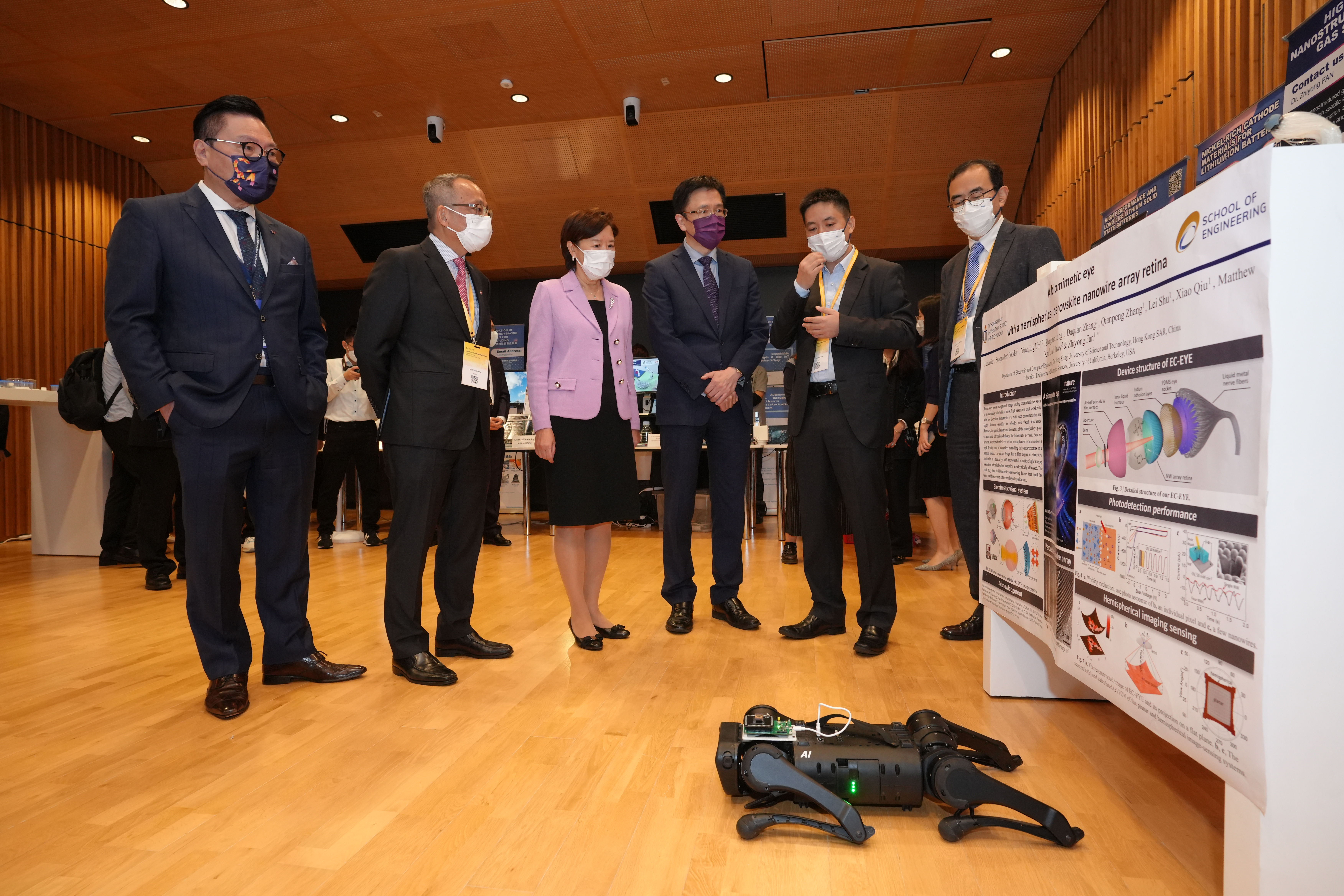
Industry Engagement Day 2022: HKUST researchers introduce their research projects to Prof. SUN Dong, Secretary for Innovation, Technology and Industry of the Hong Kong Special Administrative Region (HKSAR) (third right), Prof. Nancy IP, HKUST President (third left), Prof. Tim CHENG, HKUST Vice-President for Research and Development (second left)
Community Engagement
HKUST Dream Builder Program
The HKUST Entrepreneurship Center holds various incubation programs for start-ups, including the Dream Builder Incubation Program which offers funding, coaching, training, mentorship, and in-kind support to aspiring entrepreneurs in developing innovative startups.
Sino One Million Dollar Entrepreneurship Competition
In collaboration with Sino Group, HKUST organized the HKUST-Sino One Million Dollar Entrepreneurship Competition where health and environmental safety were a focus for the winning teams. The teams developed an array of innovative proposals including an artificial intelligence-based system to enhance construction site safety, an affordable rapid infectious disease test kit for pets, and a novel automated cocktail machine for wellbeing rejuvenation.
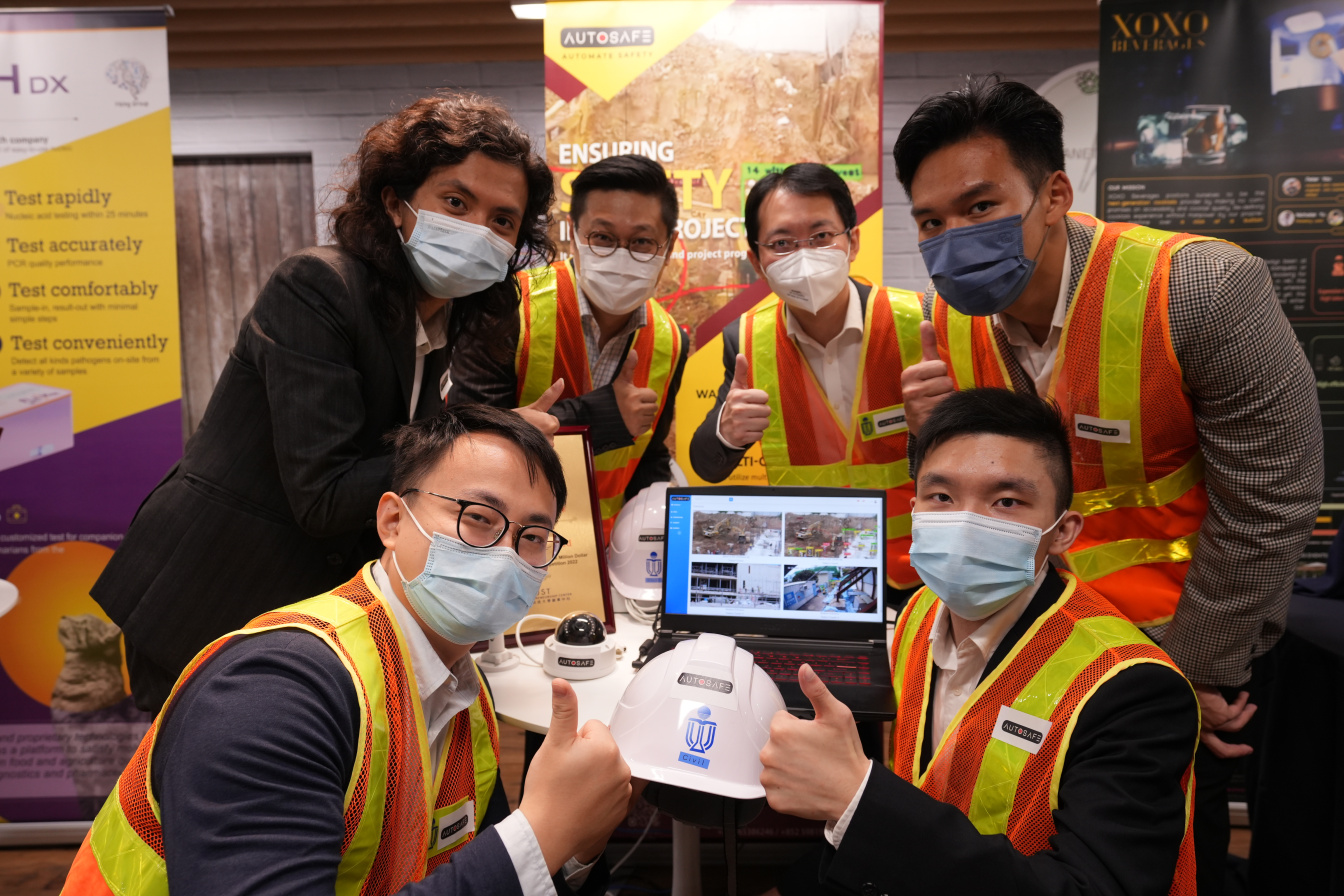
HKUST-Sino One Million Dollar Entrepreneurship Competition 2022: AutoSafe wins Platinum Award
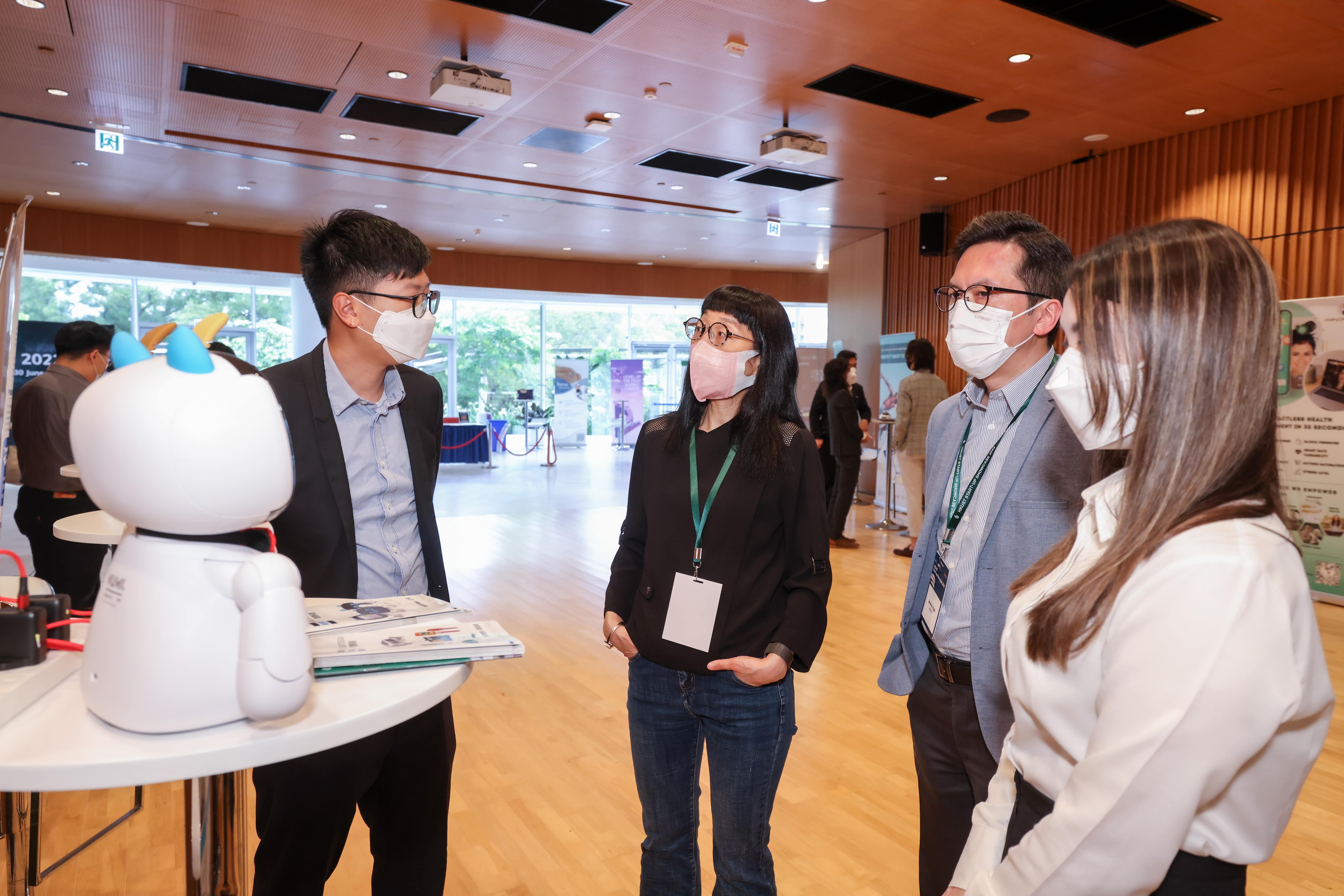
June 2022: HKUST Startup Showcase
Sustainable Smart Campus as a Living Lab
Facial Recognition Technology as an Alternative to a Campus ID Card
Under the Sustainable Smart Campus as a Living Lab (SSC) initiative, researchers collaborated with HKUST’s library to experiment with optional facial recognition technology as an alternative to a campus ID card, simplifying access to library services and streamlining counter interactions for users.
Centralized Platform for Accessing Information
Additionally, the Living Lab supported the USThing Extension project, a mobile application aimed at enhancing the campus experience for students, faculty, and staff. The app serves as a centralized platform for accessing important information (e.g. class schedules, grades and library resources), navigating the campus, staying updated on events, and utilizing various services, ultimately enhancing the overall experience for the university community.
